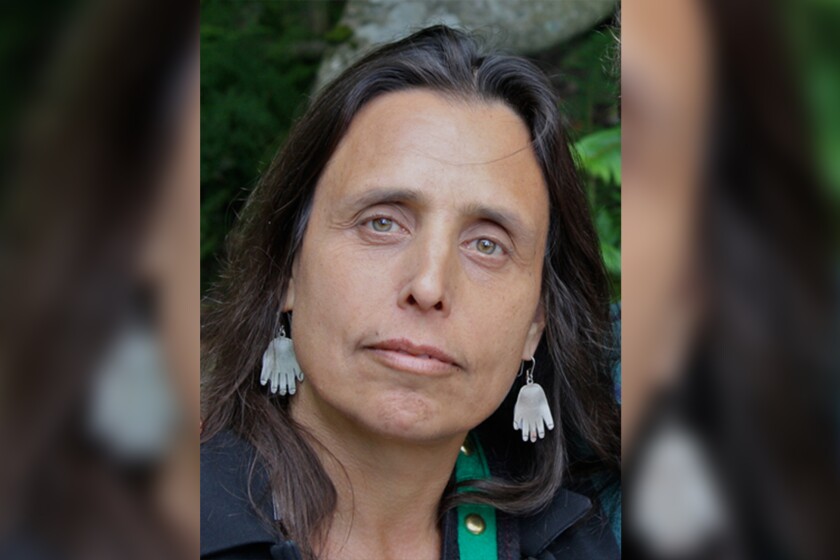"Native foster care is a very emotional subject. ... The fact is that Native children need Native families and thriving Native communities."

Minnesota is poised to be the first state to protect the rights of tribal nations and Native children. That’s the right thing to do and it has broad bipartisan support, thanks to the leadership of Minnesota’s Native legislators.
At stake is The Minnesota Indian Family Preservation Act, which intends to shore up the ability of Native families to keep Native children, instead of seeing them turned over to non-Native homes for long-term foster care or adoption. That’s how a people can continue, given that history has not been good to Native children.
The bill is also moving forward now because the U.S. Supreme Court may strike down the protections afforded to Native children through the Indian Child Welfare Act (ICWA). Minnesota is stepping up to keep protection for Native children intact. But we must also tackle the bigger question of what sends Native kids to foster care, and how we restore healthy Native communities and protect the ecosystems which support a way of life.
Native foster care is a very emotional subject. Losing children to another culture is damaging. Lost to the next generation is the ability to transfer lessons, cultural values, teachings and even places — where to harvest wild rice or pick berries, for instance. Those are essential parts of being Anishinaabe. We want to keep the children, and we want to keep the ecosystems, the wild rice, the fish and good life for them.
The United Nations defines one component of genocide as removal of children from the community. But historically both the Canadian and U.S. governments have forcibly removed thousands of Native children from their homes. The federal Indian Child Welfare Act was intended to protect Native children, but last fall the Supreme Court took up challenges to the ICWA in the case of Haaland v. Brackeen.
This is primarily a Texas case, where the child was eventually kept by the non-Native couple who now wants the child’s sibling. But there’s also a Minnesota connection. A Minnesota couple, Danielle and Jason Clifford, argued in court that they could better provide for the child, but the White Earth Nation and the grandmother fought back and the grandmother won custody because of ICWA.
The fact is that most things have been stolen from our people. Land is the most obvious proof of that. But Christian churches similarly outlawed our religions and took children to residential schools where they were often heavily abused. Many Native people then and now lose their lives to the American system whether in courts, jails or extreme poverty. Children are the future, and that’s why Native families and our communities are fighting to keep minimal protections in Minnesota.
As state Sen. Mary Kunesh, DFL-New Brighton, explained recently, “At one time in Minnesota, the state took Indian children from their families to be placed into foster care or for permanent adoption at five times the rate they did non-Indian children. Some Indian children spent years trying to recover their Indian identities and reconnect with their tribal communities. Many others never made it home to see their families or communities again.”
That’s why Kunesh and Reps. Heather Keeler, Alicia Kozolwski, Jamie Finn and other Native legislators led this work. They were joined by many other state representatives who said this was the right thing to do. These representatives are working to protect Minnesota Native families, making Minnesota the first state in the country to shore up the foundations of the Indian Child Welfare Act.
Nearly every tribe in the nation and in Minnesota, including the White Earth Band of Ojibwe, delivered “friend of the court” briefs to the Supreme Court: “The challenges to ICWA in this litigation seek to diminish ICWA’s protections and undermine the unique trust responsibilities the United States owes to Indian children and Indian Tribes,” says a brief filed by 180 Indian tribes and 35 tribal organizations.
Now, I’m going to ask the uncomfortable question: How do we improve the quality of life in our own tribal communities, so that there is no need for foster care or adoption? Health and housing situations in our community remain dire. The water in villages such as Pine Point and Rice Lake is really a serious problem. Years have gone by without upgrades. Pipes are laid only for Canadian corporations but not for Native people.
When do we secure adequate funding for housing, heat and basic necessities for our communities, so that our children are less at risk? Food security is likewise an ongoing problem for Native families and is further compromised by criminalizing Native harvests, or destruction of Native foods. Wild rice and maple stands are laid to waste by a flick of a pen at the Minnesota Department of Natural Resources, while destabilizing and clear cutting our world continues.
The fact is that Native children need Native families and thriving Native communities. Let’s be courageous Minnesota and make sure Native kids are in our communities, and that our communities are able to thrive, and our Akiing — the land to which we belong — remains intact.
And thank you to the Minnesota legislators for doing the right thing.
Winona LaDuke is executive director, Honor the Earth, and an Ojibwe writer and economist on Minnesota’s White Earth Reservation. She is also owner of Winona's Hemp and a regular contributor to Forum News Service.
READ THIS:
White saviors are the worst': Minnesota lawmaker tells 'white Christians' to 'stop adopting Native American babies' because changing their names and identities is 'genocide






















No comments:
Post a Comment
Please: Share your reaction, your thoughts, and your opinions. Be passionate, be unapologetic. Offensive remarks will not be published. We are getting more and more spam. Comments will be monitored.
Use the comment form at the bottom of this website which is private and sent direct to Trace.